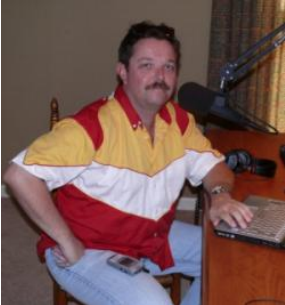Contract Engineering: How to be a Contract Engineering Star

[August 2009] In 1979, The Statler Brothers had a song hit on the charts called “How to be a Country Star.” In it they detailed, in tongue-in-cheek fashion, traits needed to be a country music star such as whispering like Bill Anderson, “Yo-yo’ing” like Roy Acuff or telling jokes like Minnie Pearl.
Hearing that song on the radio the other day got me to thinking about how to be a “broadcast engineering star.” Or, more specifically, what it takes to go out on your own to be a contract engineer for broadcast stations.
I came up with a few ideas I would like to share with you in the event you are contemplating leaving the safe, corporate world of engineering and entering the wild, wild west of contract engineering.
Post Consolidation
One of the results of consolidation over the past decade is engineering talent suddenly finding themselves under-employed or out of employment. Some of these folks found their way into cellular and land-mobile services.
However, many others just could not get radio out of their systems. After spending 12 years in television, I eventually made my way back to my first love, radio. Still, I grew tired of the corporate grind of being Chief Engineer for six radio stations and being constantly tied to a cell phone.
Therefore, in December of 2004 I left corporate radio and formed my own engineering, contracting, and consulting firm. I have not looked back.
A Job Not For Everyone
One thing that I must emphasize: it is not for the weak of heart. You must be a self starter with the uncanny ability to sniff out work where there normally would be none. (I have had mixed results with this ability.)
I recommend planning in advance – start at least a year in advance of your flying solo. Work on getting your name out; call and network with station owners and managers. Possibly have several clients already lined up for regular work before just going cold turkey.
As you do this, be careful to steer clear of any appearance of conflict of interests with your current employer. I went so far as to not call on stations within the market in which I was employed until after I had left my employment there. Most of them already had full-time engineers anyway. I concentrated at first on contacting the smaller stations out in Kentucky, Indiana and Tennessee.
The “Coverage Area”
A major issue to decide on is how far you are willing to travel from home. This is something that each individual person has to resolve for themselves.
Since I have a younger daughter, I decided on a 250-mile radius of Louisville and drew a circle with a 250-mile radius on a road map. I then grabbed a copy of the M Street directory and started calling. I never have been much of a sales person, but making cold calls will teach you quickly.
Lesson #1: Do not take “no” personally. Some radio stations already may have contract guys they use. Some may simply not have any upcoming projects and some owners do not realize the importance of good engineering practices as yet. Also, realize the time you call might not be a good time for the person to whom you need to talk.
Introductions
Keep your introduction short and sweet. Then ask for an address where you can send more information about yourself and what you do, so that they may read it at their leisure (and, one hopes, be more receptive to it). Keep the mailing short, too. Outline your past experience, what you have done, and where. List a couple of people (with their permission) they can call for references and a way to contact you should they need your services.
After getting over my initial shyness, I came to enjoy this part. Especially talking with receptive owners and managers who wanted to engage me in a little more than just who I am and what I do. In fact, I wound up talking to one station owner over in Benton, Kentucky for an hour and a half! A key trait is the ability to sell, since you will be selling yourself and your services to station owners and managers.
Lesson #2: If you ever expect to get any work, you must make a good impression. If an owner/manager went so far as to ask me to meet with them I wore a coat and tie for that first meeting. It surprised several of them because they expected me to show up dressed like Dr. Johnny Fever. I made the impression they will not soon forget.
By the way, the more talents you have, the better off you will be. For some, transmitters are “where it’s at.” Others like computers, and still other folks like working on audio equipment. Now if you can work in all three areas, your stock goes up and opens up more places you can work. Personally, I love transmitters. But I will not turn down a job installing a new automation system or moving a studio or two. Sometimes other engineers will feed you work in areas they prefer not to handle.
One final thought on introductions: do not embellish your abilities. If you want to ruin your reputation real fast, tell a station owner you can do something then, when it is time to prove it, fail. Managers and owners network the same way engineers do.
The Money Part
Lesson #3: Do not expect to immediately bill what you are presently making in salary. Do have some backup cash for you to live on until work starts to roll in. Or a part-time job.
This is why it is good to have several clients lined up before you leave your current job. I have known some guys who were lucky enough to get a contract close to what they made in salary. But those situations are few and far between. It would be best to not plan for it, but have some sort of backup plan “just in case.”
Part and parcel of generating enough income: carefully calculate how much to bill. You do not want to undercut yourself (do not forget tools, taxes, and health insurance), nor do you want to cut yourself out of the market.
I knew already what other contract engineers charged in the area, how long they had been doing it, and what they could and could not do for a broadcast station. I settled on a figure that, so far, the market seems to be supporting.
You will also need to be flexible. Some clients like hourly charges, some want to see charges based on a full day’s work or what you would charge for an entire project. Engineers who know AM directionals can charge more than engineers who do not; engineers who can work on IT systems can charge more than engineers who cannot.
That “Other” Paperwork
You can keep up with most of your accounting and billing activities in computer software that is very affordable. I rely on QuickBooks. You easily can find out how much income your business generated and the expenses associated with making that money. It can also tell with a few clicks what clients still have outstanding invoices.
You should also find a reliable accountant and an attorney who are familiar with small business affairs. My accountant put me on the right track on how to file the quarterly tax reports to the IRS and the State of Kentucky. He is really going to earn his money over the next few months when we settle up with Uncle Sam.
An attorney will come in handy for several reasons. After I drew up a standard maintenance and service contract, I had him look it over to make sure it conformed to Kentucky’s laws. The contract will be useless if it cannot stand up to the laws of the jurisdiction in which you do business.
Sadly, without a doubt, you will run across a client or two who just will refuse to pay your invoices. An attorney will help in navigation the laws of your jurisdiction in getting paid. Often, a well-written legal letter from your attorney is enough to show an owner/manager that you mean business.
The thing to remember about accountants and attorneys is their fees go up in direct proportion to the work they do for you. Therefore, use their services wisely.
Making It Happen
Once you have staked out your territory, put your shingle out, and figured out how much to charge, what is next? Well, now you wait a bit; it will take time for people to find you. But you still have to do your part.
Lesson #4: Promote yourself. One inexpensive way to do this is with a website.
I registered my company’s name and put up a simple website outlining who I am, what I do, and how to get in touch with me (http://www.lagrange-com.com). I then put the website address on everything I can. Business cards, stamps, letterhead, even the return address on my envelopes has my website address on it. It is also kind of cool to have my email address with my company’s name in it!
But the best way to get your name out is word-of mouth from others. Obviously, though, they have to know about you to “pass it on.” For example: two of my clients had a need; they called other owners and found someone they knew with the information I mailed out earlier. I also registered with the SBE as a contract engineer and gave them the contact information.
Networking
Network with managers/owners. Joining your state and/or regional broadcasting association is a great way to do this. Regional broadcasting gatherings are good places to meet managers and owners and talk to them about your engineering abilities and their engineering needs. Plus, the state associations have some pretty good golf outings for the members.
As you drive by a small radio station, stop in for a visit. As with cold phone calls, you do run the risk of showing up at a bad time. If that is the case, leave a couple of business cards and make a quick departure. If you are dressed for a Hawaiian vacation, change your shirt. Remember: first impressions.
Network with other engineers. You can always learn something new from someone else – and your name will be at the top of their list if they need backup or a spare set of hands. And Barry Mishkind runs a great mailing list that has engineers from all over on it (www.radiolists.net). You will find many engineers more than willing to help anyone with an honest problem or question that needs to be answered.
– – –
Scott Cason is indeed a contract engineer. He is based in Louisville, KY. His email is: scott@lagrangecom.com
